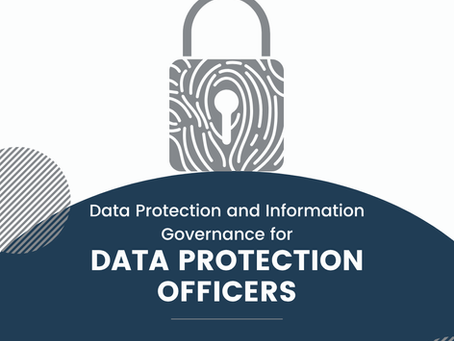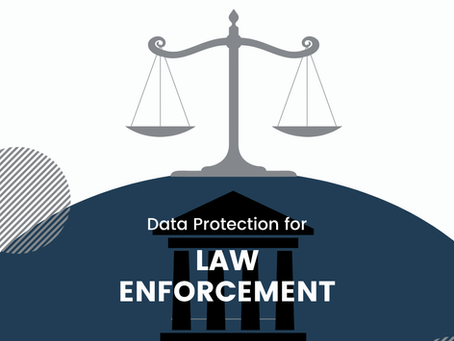top of page
Blog
PREview by Privacy Protect Group delivers expert insights on Privacy, Risks, and Ethics.
Stay informed with thought-provoking analysis and actionable strategies in data protection, governance, and compliance.


Navigating joint processing provisions introduced by Data (Use and Access) Act (DUAA) 2025
The new provisions inserted into Section 82 of the DPA 2018 allow the Home Secretary to formally designate law enforcement agencies as processors under Part 4 (intelligence services) in joint operations with MI5, MI6, or GCHQ. This means that Part 4 now applies not only to intelligence services, but also to “qualifying competent authorities” (e.g. police forces, NCA).
Privacy Protect Group Ltd.
Jul 29, 20254 min read


Automated Decision-Making (ADM) in Law Enforcement
The changes made under the Data (Use and Access) Act (DUAA) 2025 signal a seismic shift in the way law enforcement agencies must think about information governance. From HR departments to intelligence units, automated decision-making (ADM) now sits at the heart of legal compliance and ethical risk.
The amends made by DUAA 2025 allow you to use people’s personal information to make significant automated decisions about them in more circumstances, so long as you continue to a
Privacy Protect Group Ltd.
Jul 24, 20254 min read


Hidden in plain sight: what Law Enforcement needs to know about the updated national security exemption
The new s78A, introduced by s88 of the Data (Use and Access) Act (DUAA) 2025 (1), significantly expands the national security exemption under Part 3 of the Data Protection Act (DPA) 2018 (2), which governs law enforcement processing.
Here’s a breakdown of what’s changed and what it means for competent authorities.
Privacy Protect Group Ltd.
Jul 22, 20254 min read


Law enforcement codes of conduct: s71A of the DPA 2018 as introduced by DUAA 2025
The Data (Use and Access) Act (DUAA) 2025 has officially amended the Data Protection Act (DPA) 2018, introducing Section 71A: Codes of Conduct - a provision that could reshape how law enforcement agencies approach data protection compliance.
While we await formal guidance from the Information Commissioner, now is the time to unpack what this means, speculate on its impact, and draw parallels with the legal sector’s already-established codes of conduct.
Privacy Protect Group Ltd.
Jul 10, 20254 min read


DUAA 2025 amendment to DPA 2018: definition of consent for law enforcement
Since the introduction of the UK GDPR and the Data Protection Act (DPA) in 2018, law enforcement agencies have made strides in improving their approach to consent. Yet public trust remains fragile, in no small part due to some relatively recent security incidents involving law enforcement information. The latest legal update - Section 69 of the Data (Use and Access) Act (DUAA) 2025 - reshapes the understanding of consent within law enforcement.
Privacy Protect Group Ltd.
Jul 6, 20257 min read


Top tips for handling data protection complaints as introduced by Data (Use and Access) Act 2025
Top tips for handling data protection complaints as introduced by Data (Use and Access) Act 2025
Privacy Protect Group Ltd.
Jun 22, 20255 min read


Data Use and Access Act 2025 (DUAA 2025): what UK Law Enforcement needs to know about the amended logging requirements
In the evolving landscape of data protection, it is vital for UK police forces and all competent authorities (organisations processing personal data for law enforcement purposes) listed under Schedule 7 of the Data Protection Act 2018 (DPA 2018) to remain attentive to legislative developments. The arrival of the Data Use and Access Act 2025 (DUAA 2025) on 19th June 2025 marks a defining moment, particularly in how logging requirements under Section 62 of the DPA 2018 are appr
Privacy Protect Group Ltd.
Jun 19, 20254 min read
bottom of page
